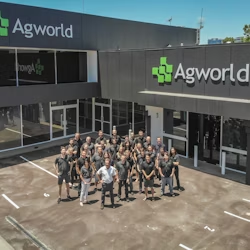With an increasing number of Free Trade Agreements (FTA) getting signed by the Australian government and our trading partners, the export market is becoming ever more important for fruit growers. The Indonesia-Australia Comprehensive Economic Partnership Agreement (IA-CEPA), signed on March 4th, is only the latest in a string of FTA’s that are now active and allow an increasing number of Australian products to be exported tariff-free or with reduced tariffs. As 70% of Australia’s agricultural production is exported, these FTA’s offer exciting opportunities for the industry with National Farmers’ Federation CEO Tony Mahar saying "In many instances, IA-CEPA will strengthen Australia’s role as the preferred supplier to the burgeoning south-east Asian economy”
However with becoming a preferred supplier comes a duty of care for quality control. We all know too well how easy it is to lose market access temporarily after a quality, maximum residue limit (MRL) or other incident, leaving growers high and dry with nowhere to export their products. It is for this reason that many growers, agronomists and other stakeholders in the supply chain are looking to increase the traceability and transparency of their products in order to ensure enduring market access in other countries.
We recently spoke to Shepparton based IK Caldwell agronomist Ruaan du Plessis, who works with a lot of stone and pome fruit growers around Shepparton that rely on Australia’s access to export markets. When asked about the importance of creating accurate records and data for export Ruaan commented: “We have a tolerance list for each pest and check each block at set intervals to make sure we stay below the given tolerance level. As exports become more important, the monitoring program is becoming bigger and more rigid; which is why we require the best recording and reporting tool available for our agronomy activities. For the monitoring program we need to show our findings, what caused them and which action we took.”
So it is no longer just about growing quality fruit and exporting it. Regular monitoring and data from these checks are becoming just as important for our trading partners so they can ensure they are receiving a product that has been accurately monitored the whole time. So, to me that raises the question: what do we actually export here? Fruit or data? And what is more important to our trading partners?

Got what it takes to join the Agworld team? We’re looking for talented individuals to help us deliver innovative solutions in agriculture.
The truth is probably somewhere in the middle and I think that we’ll find more and more that market access to export our quality products is limited if we do not have the appropriate data to go with it. We all know that we need good boxes to pack our fruit in for export; data is just another critical component that needs to go with the fruit if we want to be able to export it, just the same as the box the fruit is packed in.
There are many digital tools available to help growers comply with relevant legislation and they will only become more important in future. This does not necessarily mean that growers don’t produce a quality product if they don’t use digital tools, rather that growers and agronomists need digital tools to show their production methods to our trading partners. Quality assurance is not about changing growing methods; it’s all about providing traceability and transparency of current processes.
At Agworld we are committed to helping growers and their stakeholders to ensure they can easily gather the data they need and are able to present that to the relevant authorities in the form they require. Or, as Ruaan put it to us: “As an industry, especially when it comes to exports, we have to be squeaky clean and make sure we do the right thing and document every step along the way. This is why visibility, traceability and accessibility of information are so important and this is also why Agworld is so important for me with all my daily tasks. Having all the information available in the same spot helps us prevent MRL breaches and also provides growers with a digital backup of everything that happened during the season.
Article originally appeared in Australian Tree Crop
Download Article




